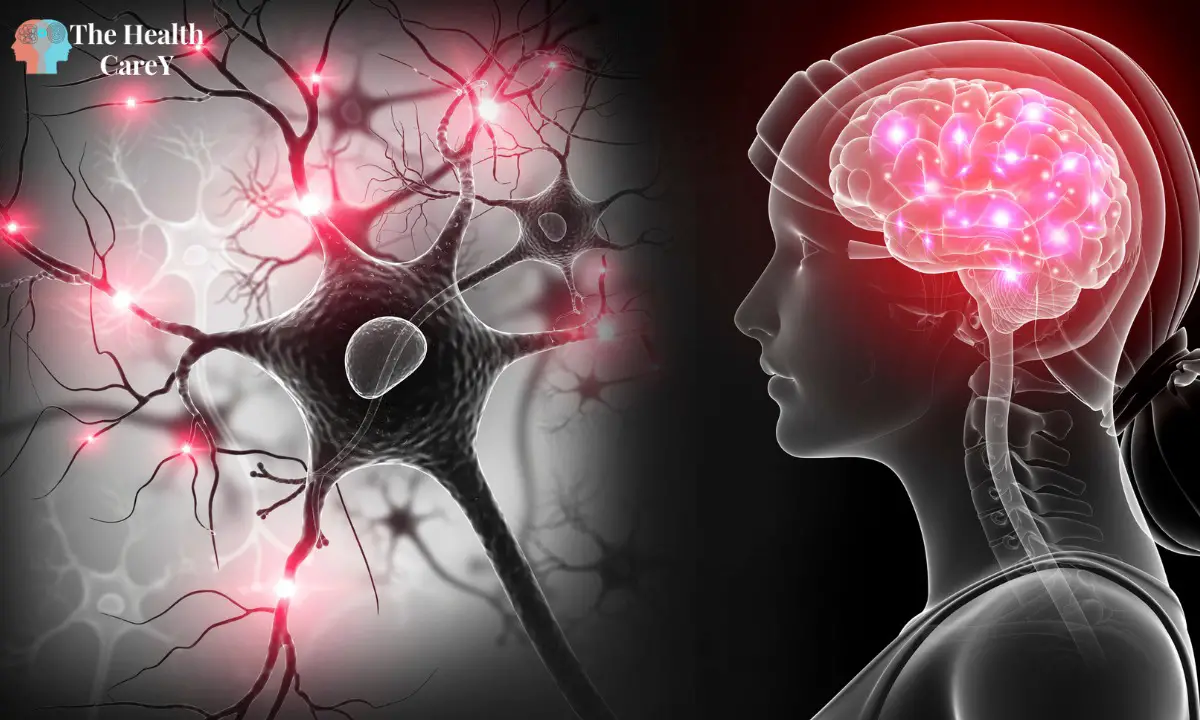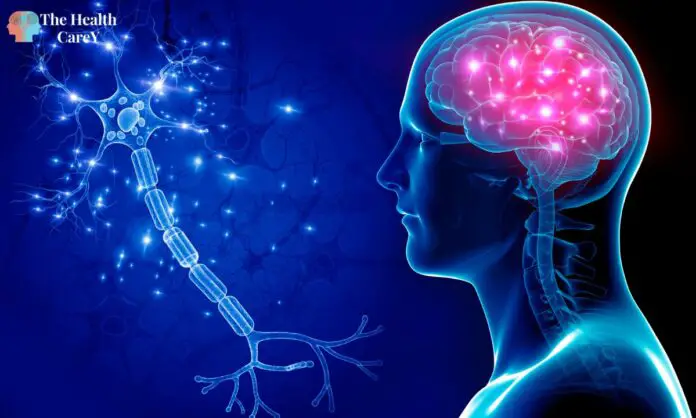If you are experiencing symptoms such as anxiety, depression, or physical pain, it could be due to a dysregulated nervous system. The nervous system is a complex network of nerves and cells that controls the body’s response to stimuli. When the nervous system is dysregulated, it can cause various problems that can negatively impact your daily life.
There are many potential causes of nervous system dysregulation, including trauma, stress, and chronic illness. It can manifest in different ways, such as appearing shut down, lazy, or “out of it” as part of the “freeze” or “fawn” trauma responses. Recognizing the signs of nervous system dysregulation and seeking treatment to improve your quality of life is essential. In this article, we will explore the symptoms, causes, and treatments for nervous system dysregulation, so you can better understand this condition and how to manage it.
Understanding Nervous System Dysregulation
Nervous system dysregulation is a condition in which the nervous system fails to function correctly. The nervous system is a complex network of cells and nerves that control the body’s response to stimuli. It is divided into two main parts: the central nervous system (CNS) and the peripheral nervous system (PNS).
The CNS is responsible for processing and interpreting information from the body and the environment. It consists of the brain and spinal cord. The PNS transmits data between the CNS and the rest of the body. It consists of nerves that connect the CNS to the muscles, organs, and tissues.
The autonomic nervous system (ANS) is a part of the PNS responsible for regulating the body’s internal organs and functions. It is divided into two parts: the sympathetic nervous system (SNS) and the parasympathetic nervous system (PNS). The SNS is responsible for the body’s “fight or flight” response, while the PNS is responsible for the body’s “rest and digest” response.
When the nervous system is dysregulated, it can cause various problems, including anxiety, depression, and physical pain. Dysregulation can occur when a person is triggered into a sympathetic state characterized by chaotic energy and heightened arousal. Polyvagal theory suggests that dysregulation can also happen when a person cannot access their parasympathetic system, which is responsible for relaxation and regulation.
Common signs of nervous system dysregulation include:
- Feeling overwhelmed or easily triggered
- Difficulty regulating emotions
- Chronic pain or tension
- Digestive problems
- Sleep disturbances
- Fatigue or low energy
Various factors, including trauma, chronic stress, illness, and environmental factors, can cause nervous system dysregulation. Treatment for dysregulation typically involves regulating the nervous system through techniques such as mindfulness, meditation, and breathing exercises.
Causes and Triggers of Dysregulation
Various factors, including stress, anxiety, chronic stress, past trauma, childhood trauma, and bad experiences, can cause nervous system dysregulation. Understanding the causes of dysregulation is crucial in identifying and managing the symptoms.
Stress is a common trigger for nervous system dysregulation. When you experience stress, your body’s natural response activates the sympathetic nervous system, which prepares you for fight or flight. However, chronic stress can lead to dysregulation of the nervous system and cause symptoms, including mood swings, irritability, and fatigue.
Anxiety is another common trigger for nervous system dysregulation. When you experience anxiety, your body’s natural response is to activate the sympathetic nervous system, which can lead to dysregulation over time. Chronic anxiety can cause various symptoms, including panic attacks, insomnia, and digestive issues.
Trauma, including past and childhood trauma, can also trigger nervous system dysregulation. Trauma can cause the nervous system to become stuck in a state of hyperarousal, leading to a range of symptoms, including flashbacks, nightmares, and dissociation.
Chronic stress, such as work-related or financial stress, can also trigger nervous system dysregulation. Chronic stress can cause the nervous system to become stuck in a state of hyperarousal, leading to a range of symptoms, including fatigue, irritability, and difficulty concentrating.
Bad experiences like a problematic breakup or job loss can also trigger nervous system dysregulation. These experiences can cause the nervous system to become stuck in a state of hyperarousal, leading to a range of symptoms, including mood swings, anxiety, and depression.
In summary, nervous system dysregulation can be caused by various factors, including stress, anxiety, chronic stress, past trauma, childhood trauma, and bad experiences. Understanding the causes of dysregulation is crucial in identifying and managing the symptoms.
Symptoms and Signs
If you are experiencing nervous system dysregulation, you may notice a range of symptoms and signs that indicate something is wrong. While the exact symptoms can vary from person to person, here are some common signs to look out for:
- Mood changes: You may notice that you are feeling more irritable or depressed than usual. This can be due to changes in the levels of neurotransmitters in your brain.
- Headaches: You may experience frequent headaches or migraines, which can signal nervous system dysregulation.
- Blood pressure changes: Your blood pressure may fluctuate, leading to feelings of dizziness or lightheadedness.
- Skin changes: You may notice changes in your skin, such as flushing or sweating, which can indicate autonomic nervous system dysfunction.
- Heart rate changes: Your heart rate may increase or decrease unexpectedly, which can signal nervous system dysregulation.
- Muscle tension: You may feel tense or have muscle spasms, which can signal nervous system dysregulation.
- Exhaustion: You may feel more tired than usual, even if you have been getting enough sleep.
- Weakness: You may feel weak or have difficulty with physical tasks, signaling nervous system dysregulation.
- Tremors: You may experience tremors or shaking, signaling nervous system dysregulation.
- Shortness of breath: You may feel like you are having difficulty breathing or experience shortness of breath, which can signal nervous system dysregulation.
If you are experiencing any of these symptoms or signs, it is essential to speak with your doctor. They can help you determine the underlying cause of your symptoms and develop an appropriate treatment plan.
Impact on Body Functions
When your nervous system is dysregulated, it can affect many different body functions. Here are some of the most common ways that nervous system dysregulation can impact your body:
- Breathing: Your nervous system helps regulate your breathing rate. Dysregulation can cause you to breathe too quickly or slowly, leading to problems like hyperventilation or shortness of breath.
- Heartbeat: Your nervous system also helps regulate your heart rate. Dysregulation can cause your heart to beat too quickly or slowly, leading to problems like palpitations or fainting.
- Digestion: Your nervous system helps regulate your digestion. Dysregulation can cause problems like constipation, diarrhea, or stomach pain.
- Senses: Your nervous system helps regulate your senses. Dysregulation can cause problems like sensitivity to light or sound or a loss of sensation in your limbs.
- Sleep: Your nervous system helps regulate your sleep-wake cycle. Dysregulation can cause problems like insomnia or excessive sleepiness.
- Sexual function: Your nervous system plays a role in sexual function. Dysregulation can cause problems like erectile dysfunction or loss of libido.
- Fight or flight: Your nervous system is responsible for the fight or flight response. Dysregulation can cause you to feel constantly on edge or trigger a panic attack.
- Nature: Your nervous system helps regulate your response to nature. Dysregulation can cause you to feel overwhelmed by nature or disconnected from it.
- Touch and smell: Your nervous system helps regulate your sense of touch and smell. Dysregulation can cause problems like hypersensitivity or a loss of sensation.
It’s important to remember that everyone’s experience of nervous system dysregulation is different. Some people may experience only a few of these symptoms, while others may experience many. If you’re experiencing any of these symptoms, it’s important to talk to your healthcare provider to determine the best course of treatment for you.

Role of Emotions and Mind
When it comes to nervous system dysregulation, emotions, and the mind play a crucial role. Feelings are closely tied to your nervous system and can significantly affect functioning. For example, experiencing intense emotions such as fear or stress can activate your body’s “fight or flight” response, causing your heart rate and breathing and your muscles to tense up.
On the other hand, engaging in fun activities or experiences can have the opposite effect, activating the body’s “rest and digest” response and promoting relaxation. This can help regulate the nervous system and reduce stress or anxiety.
Attention also plays a role in nervous system dysregulation. When you are hyper-focused on a task or thought, your body may tense, and your breathing may become shallow. This can lead to feelings of anxiety or even panic. Practicing mindfulness can help you to become more aware of your thoughts and feelings and to regulate your attention in a more balanced way.
Lying or hiding your emotions can also contribute to nervous system dysregulation. When you are not honest about how you are feeling, it can create internal tension and stress. This can lead to mood swings and emotional dysregulation.
Overall, being aware of your emotions and practicing mindfulness can help to regulate your nervous system and promote emotional balance. By engaging in fun activities, paying attention to your thoughts and feelings, and being honest about your emotions, you can help promote a healthy nervous system and reduce stress and anxiety.
Associated Disorders
When the nervous system is dysregulated, it can lead to various associated disorders that affect different bodily functions. Here are some of the most common diseases related to nervous system dysregulation:
- Post-Traumatic Stress Disorder (PTSD): PTSD is a mental health condition that can develop after experiencing or witnessing a traumatic event. It can cause various symptoms, including flashbacks, nightmares, and severe anxiety.
- Insomnia: Dysregulation of the nervous system can also lead to insomnia, a sleep disorder characterized by difficulty falling or staying asleep. This can further exacerbate other symptoms related to nervous system dysregulation.
- Autonomic Dysfunction: Dysregulation of the autonomic nervous system can lead to autonomic dysfunction, which affects the body’s ability to regulate various bodily functions, such as heart rate, blood pressure, and digestion.
- Dysautonomia: Dysautonomia is a group of medical conditions caused by problems with the autonomic nervous system. It can cause various symptoms, including dizziness, fainting, and rapid heartbeat.
- Postural Orthostatic Tachycardia Syndrome (POTS): POTS is a type of dysautonomia that affects the body’s ability to regulate blood pressure and heart rate when changing positions, such as standing up from a seated position.
- Irritable Bowel Syndrome (IBS): Dysregulation of the nervous system can also lead to IBS, a common gastrointestinal disorder characterized by abdominal pain, bloating, and changes in bowel movements.
- Diabetes: Dysregulation of the nervous system can also affect blood sugar regulation, which can contribute to the development of diabetes.
- Rheumatoid Arthritis: Dysregulation of the immune system can also contribute to developing autoimmune disorders such as rheumatoid arthritis.
- Lyme Disease: Lyme disease is a tick-borne illness that can affect the nervous system, leading to various symptoms, including fatigue, joint pain, and neurological symptoms.
Central nervous system dysregulation can lead to various disorders affecting multiple bodily functions. It is important to seek medical attention if you are experiencing any symptoms related to nervous system dysregulation.
Management and Treatment
Managing and treating nervous system dysregulation can be challenging, but many strategies can help you find relief. Working with a healthcare professional to develop a personalized treatment plan that meets your unique needs is essential.
Self-Care Strategies
Self-care strategies can be an effective way to manage nervous system dysregulation. These may include:
- Exercise: Regular physical activity can help reduce stress and improve mood.
- Meditation and yoga: These practices can help calm the mind and promote relaxation.
- Music therapy: Calming music can help reduce anxiety and promote relaxation.
- Setting boundaries: Healthy boundaries can help reduce stress and promote emotional well-being.
- Relaxation techniques: Deep breathing, progressive muscle relaxation, and other relaxation techniques can help reduce stress and promote relaxation.
Professional Support
Working with a therapist or psychologist can be essential to managing nervous system dysregulation. A mental health professional can help you develop coping strategies, manage symptoms, and improve emotional regulation.
Supplements and Herbs
Certain supplements and herbs may help manage nervous system dysregulation. These may include:
- Magnesium is vital for nervous system function and may help reduce anxiety and promote relaxation.
- Rhodiola rosea: This herb has adaptogenic properties and may help reduce stress and improve mood.
It would help to talk to your healthcare provider before taking supplements or herbs to ensure they are safe and appropriate.
Healthy Diet
Eating a healthy, balanced diet can also be important in managing nervous system dysregulation. A diet rich in whole foods, fruits, and vegetables can provide the nutrients your body needs to function correctly.
In conclusion, managing and treating nervous system dysregulation requires a comprehensive approach, including self-care strategies, professional support, supplements and herbs, and a healthy diet. Working with a healthcare professional can help you develop a personalized treatment plan that meets your unique needs.
Role of Lifestyle Changes
Regarding managing nervous system dysregulation, lifestyle changes can improve your overall well-being and promote harmony within your body. Here are some tips to help you get started:
- Take care of your eyes: Spending long hours in front of a screen can strain your eyes and disrupt your nervous system. Take regular breaks and practice eye exercises to reduce eye strain.
- Focus on overall health: Eating a balanced diet, staying hydrated, and getting enough sleep contribute to a healthy nervous system. Aim for at least 7-8 hours of sleep each night, and try incorporating more fruits, vegetables, and whole grains into your diet.
- Practice concentration exercises: Activities like meditation, yoga, and deep breathing exercises can help calm your nervous system and improve your ability to concentrate.
- Activate your rest and digest response: Engage in activities that activate your parasympathetic nervous system, such as taking a warm bath, practicing gentle stretching, or spending time in nature.
- Take care of your spinal cord: Keeping your spine healthy can help ensure proper nervous system function. Consider seeing a chiropractor or practicing exercises that promote spinal health, such as yoga or Pilates.
- Prevent infections: Certain infections, such as Lyme disease, can cause nervous system dysregulation. Take steps to prevent conditions, such as wearing protective clothing outdoors and using insect repellent.
By making these lifestyle changes, you can help support your nervous system and promote overall well-being. Consult a healthcare professional before significantly changing your lifestyle or treatment plan.
Frequently Asked Questions
Is nervous system dysregulation a legitimate condition?
Yes, nervous system dysregulation is a legitimate condition that affects many people. It refers to the inability to regulate one’s emotional responses, which can lead to significant mood swings, changes in mood, or emotional lability. Various factors, including trauma, chronic stress, or genetic predisposition, can cause this.
How can one regulate their autonomic nervous system?
Several ways to regulate your autonomic nervous system include deep breathing exercises, meditation, yoga, and other relaxation techniques. These practices can help activate the parasympathetic nervous system, which is responsible for the body’s rest and digestion response.
What are the symptoms of autonomic nervous system dysregulation?
The symptoms of autonomic nervous system dysregulation can vary widely but may include anxiety, depression, insomnia, chronic fatigue, digestive problems, and chronic pain. These symptoms can be debilitating and significantly impact a person’s quality of life.
What causes dysregulation of the nervous system?
Various factors, including trauma, chronic stress, genetics, and environmental factors, can cause nervous system dysregulation. Trauma, in particular, can significantly impact the nervous system, leading to dysregulation and a range of physical and emotional symptoms.
What are the signs of a nervous system that is not functioning correctly?
Signs of a nervous system not functioning correctly can include anxiety, depression, chronic pain, digestive problems, fatigue, and insomnia. These symptoms can be debilitating and significantly impact a person’s quality of life.
How can one heal their nervous system from trauma?
Healing the nervous system from trauma can be a complex and challenging process, but several effective treatments are available. These may include therapy, meditation, yoga, other relaxation techniques, and medication in some cases. Working with a qualified healthcare professional to develop a treatment plan tailored to your specific needs and circumstances is vital.
Also Read:
Can kidney stones lead to kidney damage?




















